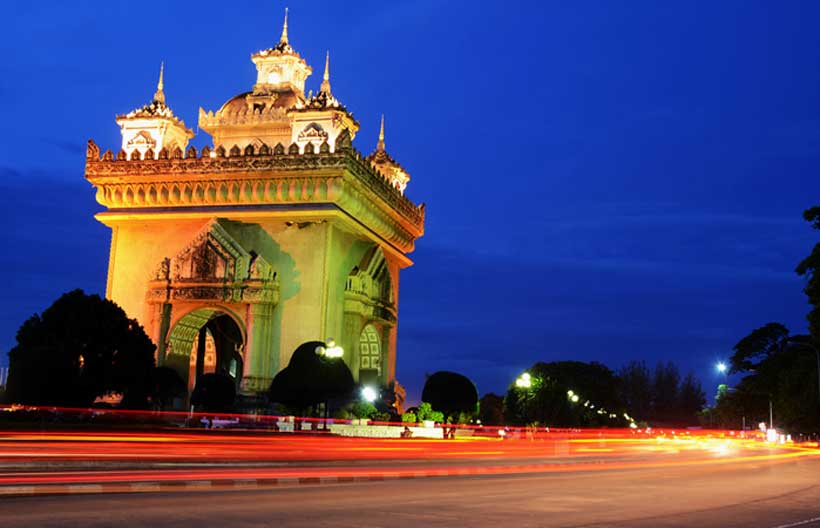Lao People’s Democratic Republic’s development story is one of a nation with its sights firmly set on building a prosperous future in concert with the broader region. The country’s willingness to embrace an ambitious national development plan has seen the country transition to a market-oriented economy, increasingly integrated into regional and global markets. Substantial reforms paved the way to World Trade Organisation (WTO) membership in 2013. Today, as an active member of ASEAN’s Economic Community, Lao PDR is working to deepen economic integration: to improve market access to regional partners and to achieve the transit routes crucial for any landlocked country to engage fully in international trade.
Lao PDR’s approach has delivered impressive economic growth, above 6.5
percent per year for over a decade and forecast to be 6.8 percent in 2019. Over
the past quarter of a century, extreme poverty has been significantly reduced.
Income per capita has increased, and access to education and health care
services has improved. Targeted development plans and industrial policies have
been developed to support the transformation of the economy. Lao PDR could
graduate from least developed country status by 2024 if these gains are
maintained, which would be a greater achievement still.
At the United Nations Economic and Social Commission for Asia and the Pacific
(ESCAP), we take a regional approach to supporting our member States achieve
sustainable development. Lao PDR’s recent journey is one on which we are keen
to build. We work with the whole UN family to overcome challenges which
transcend borders and to achieve a sweeping set of economic, social and
environmental objectives captured by the United Nations 2030 Agenda for
Sustainable Development. I am meeting the Laotian leadership this week with
these objectives in mind and to join forces with national agencies and
development partners to accelerate the implementation of the Eighth 5 Year
National Socio-Economic Development Plan.
Our analysis demonstrates that across Asia and the Pacific, much more needs to be done to achieve all 17 Sustainable Development Goals. While Lao PDR has achieved a great deal, its economic growth has not been sufficiently inclusive or sustainable, which has led to inequality. The quality of education and lifelong learning needs to be significantly improved; to give young people opportunity, support entrepreneurship and enable companies to expand and create jobs. Transparency and predictability of policies and legal frameworks would improve the business environment. There is great scope for the Laotian economy to become more productive and diverse, and to attract investment to areas beyond resource extraction and large infrastructure projects.
To unleash this potential and achieve sustainable development, substantial investment is needed. The additional investment required across the whole of the region is $1.5 trillion a year. Our analysis shows the region has the fiscal space to afford this. Yet mobilizing these additional resources will require a concerted effort, particularly for Least Developed Countries. Reforms to increase tax revenue and private sector investment will be necessary in the face of declining overseas aid. For Lao PDR to achieve the Sustainable Development Goals, significant investment of an additional $3 a day per person is needed. Investment equivalent to some 3.6 percent of GDP per year could end poverty by paying for basic social protection and financing development programmes. To achieve universal education from pre-primary to upper secondary school by 2030, additional investment equivalent to 2.2 percent of GDP a year is needed to secure the country’s future.
These additional investments must be accompanied by measures to diversify the economy. Raising productivity in rural areas will be key, along with broad based policy interventions in addressing vulnerable groups and communities. Government efforts to promote green and sustainable agro-processing can be complemented by stronger links between agriculture, manufacturing and service sectors. Supporting Lao PDR’s thriving manufacturing base through special economic zones is important for employment but also for government revenue. These can also help encourage investment in the service sector and improve the quality of Lao PDR’s growth, but they must be complemented by improved transport connectivity. ESCAP is supporting the development of dry ports in the region, to make the shipment of sea cargo to inland destinations more efficient.
As we reach for a better future, Lao PDR has a role to play in our region’s effort to achieve the 2030 Agenda. This will require more transformative change, significant investment and a structural shift to activities which improve the quality of economic growth and preserve the country’s precious natural environment; especially along the Mekong, a river on which millions of livelihoods depend. I am looking forward to working with Lao PDR to strengthen its long-term development partnership with the UN family. This is our opportunity to take multilateralism a step further and, building on national and sub regional achievements, deliver sustainable development in Asia and the Pacific.


